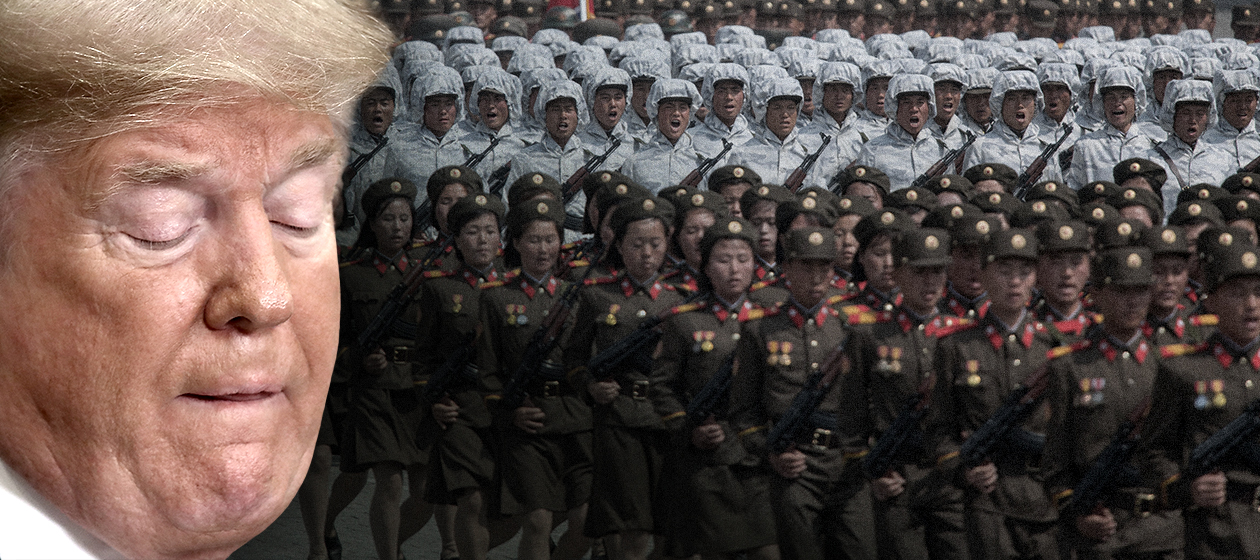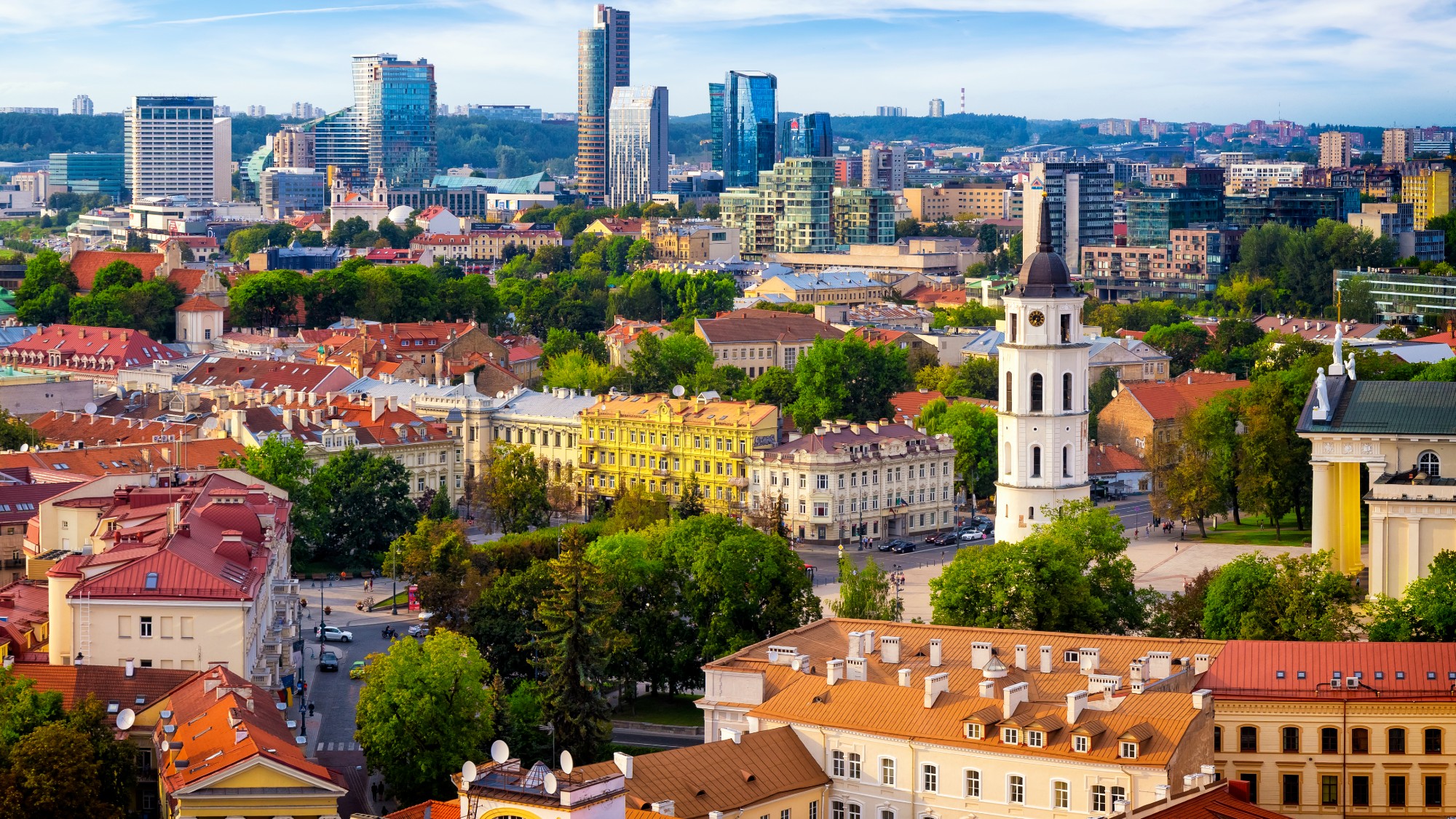What will Trump do next with North Korea? Absolutely nothing.
His North Korea strategy is all fury, no fire. Phew!


In a letter to Kim Jong Un that veered weirdly between petulantly threatening ("You talk about your nuclear capabilities, but ours are so massive and powerful that I pray to God they will never have to be used") and oddly cordial ("If you change your mind having to do with this most important summit, please do not hesitate to call me or write"), President Trump informed the North Korean leader on Thursday that the planned summit between the two is officially off. Alas, I fear Trump may never get the Nobel Peace Prize he so richly deserves.
While the summit could be rescheduled, and there could be negotiations that take place without Trump's involvement, it seems for the moment that the possibility of an agreement to remove North Korea's nuclear weapons is on indefinite hold. That leaves us with the status quo: North Korea, ruled by a brutal dictator, in possession of nukes.
And guess what? We're just going to have to live with it, for now anyway.
The Week
Escape your echo chamber. Get the facts behind the news, plus analysis from multiple perspectives.

Sign up for The Week's Free Newsletters
From our morning news briefing to a weekly Good News Newsletter, get the best of The Week delivered directly to your inbox.
From our morning news briefing to a weekly Good News Newsletter, get the best of The Week delivered directly to your inbox.
The collapse of the summit might be seen as a victory for John Bolton, the president's new national security adviser. A hawk's hawk, Bolton has long believed that in North Korea, as in most other places in the world, there are few problems that can't be fixed with a healthy round of bombing. When he suggested that we might follow the "Libya model" with regard to North Korea, he knew exactly what he was doing and how the North Koreans would react. On the surface, he just meant that, like Moammar Gadhafi did in 2003, they could give up their weapons program in exchange for a package of sanctions relief and economic assistance. But he knew that the North Koreans often mention the Libyan experience as precisely the reason they shouldn't give up their weapons, since Gadhafi shut down his program and a few years later he was overthrown and killed with the help of the United States.
The North Koreans reacted predictably to Bolton's statement — outrage, outlandish threats — and now President Trump cites that reaction as a reason why the summit has been cancelled. But if that's what Bolton was hoping for, and I'm pretty sure it was, he may not be able to persuade Trump to follow through with a military strike.
That isn't because Trump has any qualms about killing large numbers of people, but he has long expressed skepticism of any military operation that could pull the U.S. into a lengthy conflict. Trump may have threatened to "totally destroy" North Korea, but even he knows that there would be no such thing as a contained strike on Pyongyang. If we bomb them, they bomb South Korea, and we've got a major war on our hands. Trump hasn't shown any appetite for that.
Nevertheless, the Trump administration keeps making threats. Trump said that while he isn't intending for Kim to meet Gadhafi's fate, that's "what will take place if we don't make a deal." Vice President Pence told Fox News, "the president made clear, you know, this will only end like the Libya model ended if Kim Jong Un doesn't make a deal."
A free daily email with the biggest news stories of the day – and the best features from TheWeek.com
But it sounds more and more like bluster — not too different from the kind of thing we hear from the North Korean state news agency, to be quite honest. As even Trump may now be coming to understand, Kim Jong Un believes that his nuclear weapons are the ultimate guarantee of his survival, and as such he values them so highly that there may be nothing we can offer him in exchange for giving them up that he would find a fair trade. And particularly after Trump walked away from the Iran nuclear agreement, Kim has little reason to trust that the United States would keep whatever promises it makes to him.
The last year has demonstrated that while Kim is a cruel and vicious dictator, he isn't a lunatic. His actions have an understandable logic to them, and in many cases they're perfectly rational. At this point there's almost no reason to think that he'll ever give up his weapons.
So we're left where we've been for a long time. As North Korea pursued nukes, it was always the policy of the U.S. government that they must not be allowed to become a nuclear power. We negotiated agreements, we issued threats, we gave warnings, and their program continued on its way to today, when they have a significant number of warheads and even intercontinental missiles to deliver them. It's still the policy of the U.S. government that North Korea must not be allowed to be a nuclear power, and we're still not stopping it, because the consequences of doing so by force are almost too awful to contemplate.
The fact of a nuclear North Korea certainly makes the world more dangerous, but it may not, in and of itself, constitute an existential threat to humanity. We don't like it one bit, but that doesn't mean we can't live with it. India and Pakistan have nuclear weapons pointed at each other, and while that gives everyone plenty of reason to be extremely nervous, it's a situation we've come to accept. Something tells me that after a couple more years of the status quo in North Korea, it will feel less like a crisis and more like an unfortunate but manageable reality.
Paul Waldman is a senior writer with The American Prospect magazine and a blogger for The Washington Post. His writing has appeared in dozens of newspapers, magazines, and web sites, and he is the author or co-author of four books on media and politics.
-
 Gavin Newsom and Dr. Oz feud over fraud allegations
Gavin Newsom and Dr. Oz feud over fraud allegationsIn the Spotlight Newsom called Oz’s behavior ‘baseless and racist’
-
 ‘Admin night’: the TikTok trend turning paperwork into a party
‘Admin night’: the TikTok trend turning paperwork into a partyThe Explainer Grab your friends and make a night of tackling the most boring tasks
-
 Find art, beautiful parks and bright pink soup in Vilnius
Find art, beautiful parks and bright pink soup in VilniusThe Week Recommends The city offers the best of a European capital
-
 Israel retrieves final hostage’s body from Gaza
Israel retrieves final hostage’s body from GazaSpeed Read The 24-year-old police officer was killed during the initial Hamas attack
-
 China’s Xi targets top general in growing purge
China’s Xi targets top general in growing purgeSpeed Read Zhang Youxia is being investigated over ‘grave violations’ of the law
-
 Panama and Canada are negotiating over a crucial copper mine
Panama and Canada are negotiating over a crucial copper mineIn the Spotlight Panama is set to make a final decision on the mine this summer
-
 Why Greenland’s natural resources are nearly impossible to mine
Why Greenland’s natural resources are nearly impossible to mineThe Explainer The country’s natural landscape makes the task extremely difficult
-
 Iran cuts internet as protests escalate
Iran cuts internet as protests escalateSpeed Reada Government buildings across the country have been set on fire
-
 US nabs ‘shadow’ tanker claimed by Russia
US nabs ‘shadow’ tanker claimed by RussiaSpeed Read The ship was one of two vessels seized by the US military
-
 How Bulgaria’s government fell amid mass protests
How Bulgaria’s government fell amid mass protestsThe Explainer The country’s prime minister resigned as part of the fallout
-
 Femicide: Italy’s newest crime
Femicide: Italy’s newest crimeThe Explainer Landmark law to criminalise murder of a woman as an ‘act of hatred’ or ‘subjugation’ but critics say Italy is still deeply patriarchal
